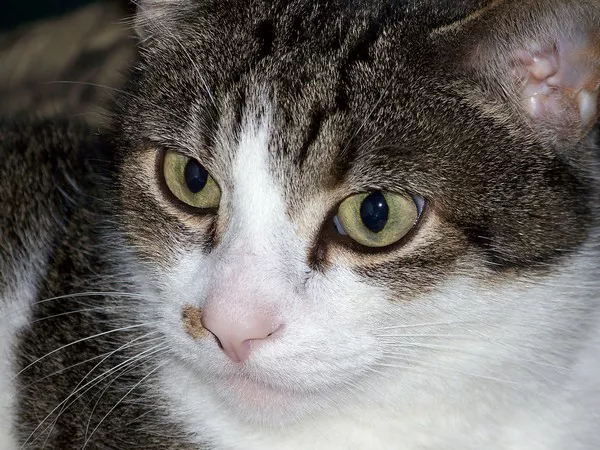Cats have captivated humans for millennia with their grace, independence, and mysterious allure. As beloved companions, they become cherished members of our families, and it’s only natural to wonder: How long will my feline friend be with me? Understanding the lifespan of cats involves delving into various factors, including genetics, environment, diet, and healthcare. In this comprehensive guide, we’ll explore the intricacies of cat longevity, shedding light on what influences their lifespan and how we can optimize their health and well-being.
The Natural Lifespan of Cats
The lifespan of cats varies significantly depending on several factors, including genetics and lifestyle. On average, domestic cats typically live between 12 to 18 years. However, it’s not uncommon for some cats to reach their early 20s or even beyond with proper care. Factors such as breed, overall health, diet, and environmental conditions play crucial roles in determining a cat’s lifespan.
Influential Factors on Cat Lifespan
Genetics: Just like humans, genetics play a significant role in determining a cat’s lifespan. Certain breeds are predisposed to specific health conditions that can affect longevity. For instance, some purebred cats may be more prone to genetic disorders, while mixed-breed cats often benefit from hybrid vigor, which can contribute to a longer lifespan.
Diet and Nutrition: Providing a balanced diet is essential for promoting a cat’s overall health and longevity. High-quality cat food formulated to meet their nutritional needs, along with access to fresh water, is vital. Proper nutrition helps maintain a healthy weight, reduces the risk of obesity-related health issues, and supports a robust immune system.
Healthcare: Regular veterinary check-ups and preventive care are crucial for detecting and addressing health issues early on. Vaccinations, parasite control, dental care, and spaying or neutering not only contribute to a cat’s quality of life but also help extend their lifespan by preventing diseases and conditions that can shorten it.
Environment and Lifestyle: A safe and enriching environment is essential for a cat’s well-being. Indoor cats generally live longer than outdoor cats due to reduced exposure to risks such as traffic accidents, predators, and infectious diseases. However, outdoor access can provide mental stimulation and opportunities for exercise, so it’s essential to strike a balance that minimizes risks while maximizing enrichment.
Stress and Anxiety: Cats are sensitive creatures that can experience stress and anxiety, which may impact their health and lifespan. Minimizing stressors in their environment, providing opportunities for mental stimulation and play, and ensuring a predictable routine can help promote emotional well-being and overall longevity.
Common Health Issues Affecting Cat Lifespan
While cats are generally resilient animals, they are susceptible to various health issues that can affect their lifespan. Some common conditions include:
Obesity: Excess weight can lead to numerous health problems, including diabetes, arthritis, and heart disease, significantly impacting a cat’s quality of life and lifespan.
Dental Disease: Poor oral hygiene can result in dental disease, which not only causes discomfort but can also lead to more severe health issues if left untreated.
Kidney Disease: Chronic kidney disease is prevalent in older cats and can significantly impact their lifespan if not managed properly.
Hyperthyroidism: This hormonal disorder, common in older cats, can lead to weight loss, increased appetite, and other symptoms that affect overall health and longevity.
Cancer: Cats can develop various types of cancer, which can significantly impact their lifespan depending on factors such as the type of cancer and how early it’s diagnosed and treated.
Promoting Longevity in Cats
While genetics plays a significant role in determining a cat’s lifespan, there are several steps that cat owners can take to promote longevity and ensure their feline companions live happy, healthy lives:
Provide a Nutritious Diet: Feed your cat a balanced diet appropriate for their age, weight, and health needs. Avoid overfeeding and monitor their weight to prevent obesity.
Regular Veterinary Care: Schedule annual wellness exams and follow your veterinarian’s recommendations for vaccinations, parasite control, and preventive care.
Maintain a Safe Environment: Create a secure indoor environment with plenty of opportunities for mental stimulation and exercise. If allowing outdoor access, supervise your cat or provide a secure outdoor enclosure.
Manage Stress: Minimize stressors in your cat’s environment and provide a predictable routine to promote emotional well-being. Consider environmental enrichment activities such as puzzle feeders, interactive toys, and vertical space.
Promote Dental Health: Brush your cat’s teeth regularly and schedule professional dental cleanings as recommended by your veterinarian to prevent dental disease and associated health issues.
Provide Mental Stimulation: Engage your cat in play and enrichment activities to keep their minds active and prevent boredom.
Monitor for Changes: Stay vigilant for any signs of illness or changes in behavior, and seek veterinary care promptly if you notice anything unusual.
See Also: How Long Do Indoor Siamese Cats Live
Conclusion
By prioritizing your cat’s health and well-being, you can help ensure they enjoy a long and fulfilling life by your side. While genetics and other factors ultimately influence a cat’s lifespan, proactive care and attention can make a significant difference in promoting longevity and enhancing the bond between you and your feline companion.























